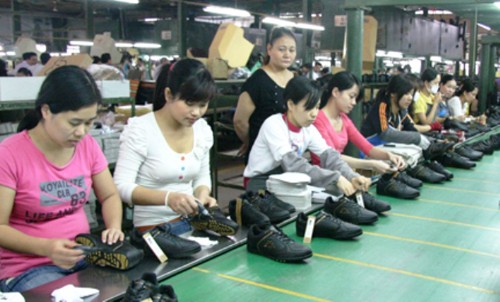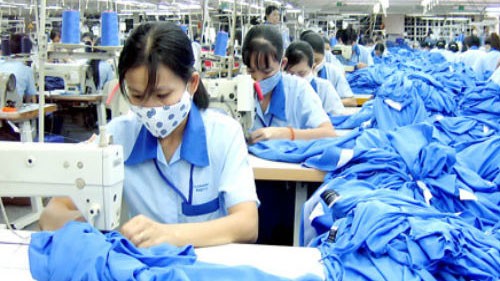(VOVworld) – In 2015 Vietnam signed free trade agreements with the Republic of Korea and the Eurasia Economic Union and completed European Union FTA and Trans-Pacific Partnership Agreement negotiations. The trade deals are expected to increase exports, attract foreign investment, and offer new opportunities for Vietnamese economic growth.

EU is one of Vietnam’s biggest importers of seafood, leather-wear, garments, and textile.
|
Unlike previous FTAs that focused on trade and commodities, the free trade agreements Vietnam has signed or completed negotiations on this year have a wider coverage not only in goods, services, and intellectual property, but also in state-owned enterprises, public procurement, customs, sustainable development, and non-commercial issues.

The EU has reached a free-trade deal with Vietnam after more than two years of negotiations, according to EU Trade Commissioner Cecilia Malmstroem. |
For instance, once the EU-Vietnam free trade agreement takes effect in 2018, more than 99% of tariff lines will be removed; Vietnam’s GDP will likely gain an additional 0.5%; and exports will increase up to 6% each year.
The biggest opportunity offered by FTAs is to expand markets thanks to tax reductions and removal of trade barriers to deal with the current limited purchasing power and Vietnamese enterprises’ competitiveness shortage.
Former Minister of Trade Truong Dinh Tuyen said:“we have set a target of earning about 20 billion USD from garment and textile exports. But when we participate in FTAs, our earnings can reach 40 billion USD. That amount of money means many new jobs. Farm produce is also a promising area once Vietnam can export agricultural items to TPP markets, because we won’t have to compete with major exporters like Thailand and India.”
Recently many foreign groups in garments and textiles, fibers, leather footwear, and wood processing have expanded their existing projects in Vietnam as a way to welcome new investment flows offered by FTAs. And the world’s leading corporations have invested in high-tech production like computer microprocessors and smart phones.
According to Nguyen Ngoc Hoa, Deputy Director of Ho Chi Minh City’s Department of Industry and Trade, “the signing of FTAs will open new opportunities for the Vietnamese economy. In particular, the TPP deal will help Vietnam restructure its export market and reduce its reliance on markets in East Asia, China, and ASEAN which account for up to 60% of Vietnam’s export revenue and 75% of its imports.”
The free trade agreements to which Vietnam has been and will be a signatory require a comprehensive reform, specifically market-oriented economic reforms, one of Vietnam’s strategic breakthroughs, according to Minister of Industry and Trade Vu Huy Hoang.
Hoang added “the advantages and benefits brought by FTAs will play an important role in Vietnam’s international integration, and economic restructuring in line with growth model renovation. The agreements will help Vietnam raise its profile in the international arena.”